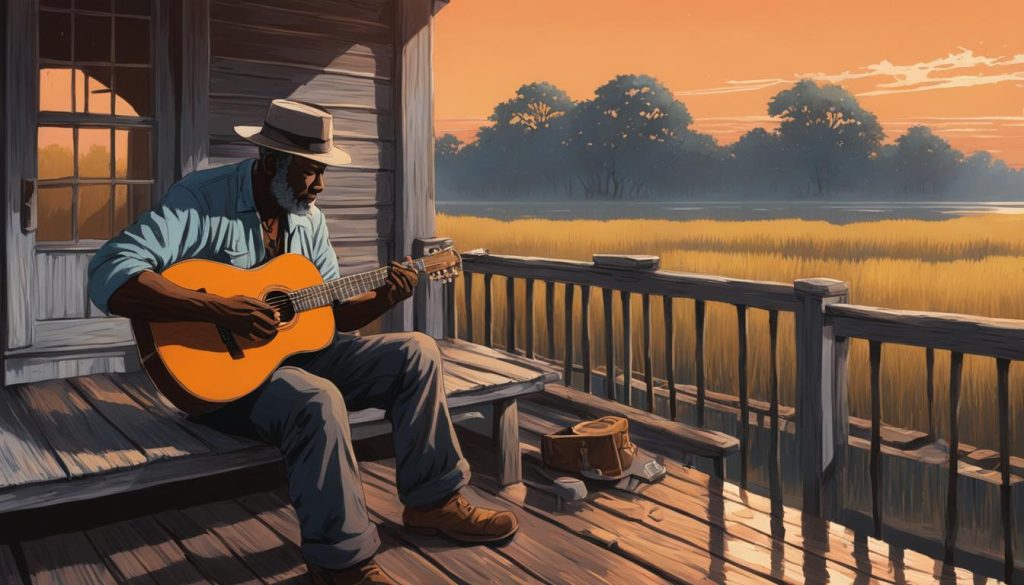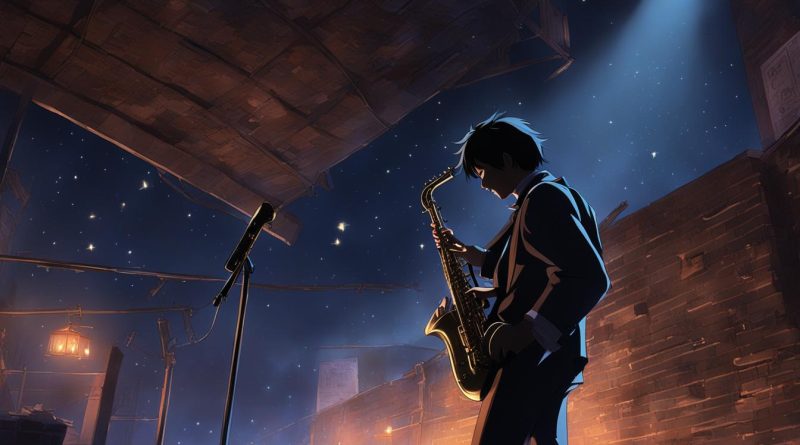Exploring the Depths of Old World Blues Music
Old world blues music is a genre with deep roots and a rich history that continues to influence contemporary music today. This section will take a closer look at the origins and evolution of old world blues, tracing its transformation from a traditional African American style of music to a celebrated genre that captured the hearts of music lovers around the world.
From its earliest beginnings in the Mississippi Delta region to its spread across the country and beyond, old world blues has left an indelible mark on the musical landscape. Join us on a journey to explore the intricate layers of this soulful genre and discover the stories behind its influences and impact.
Key Takeaways
- Old world blues music has its roots in African American traditions and emerged in the Mississippi Delta region.
- The genre evolved over time, transitioning from rural to urban blues and incorporating new instrumentation such as the electric guitar.
- Old world blues continues to inspire contemporary music and is a vital part of music history.
- The enduring influence of old world blues can be seen in various genres today.
The Roots of Old World Blues
The origins of old world blues can be traced back to the African American community in the Mississippi Delta region. This genre emerged from diverse musical influences, including traditional music styles such as work songs, spirituals, and field hollers. These forms of music were deeply rooted in the daily lives of African American laborers, and served as a means of coping with hardship and expressing emotions.
Old world blues evolved from these traditional forms, intertwining elements of jazz, ragtime, and country blues. This fusion created a unique sound that captivated audiences and paved the way for the future success of the genre.
The Mississippi Delta was a hub of musical activity during the early days of old world blues. This region had a rich musical heritage that helped foster the development of the genre. From the street corners to the juke joints, music was an integral part of life in the Mississippi Delta.

The Mississippi Delta had a lasting impact on the sound and feel of old world blues. Its landscapes, people, and culture all played a part in shaping the genre. The region’s isolation and distinctiveness allowed for the formation of a tight-knit musical community in which musicians could share their skills and ideas. From these roots, countless artists would go on to make their mark on the world of music, leaving a lasting legacy that can still be felt in the present day.
The Evolution of Old World Blues
As old world blues music gained popularity, it underwent a transformation, both in terms of the style of play and the instruments used. As the form evolved, the blues music of rural areas gradually gave way to the more upbeat and electrified sounds of urban blues that better reflected the changing cultural landscape.
The migration of Black Americans from the rural south to urban cities in the north played a significant role in the development of blues music. The new urban environment created a fertile ground for old world blues to flourish and reach a wider audience.
One of the most significant developments in the evolution of old world blues was the introduction of the electric guitar and other instruments, which brought a new level of intensity and innovation to the genre. Pioneers like Muddy Waters, whose powerful electric blues style revolutionized the sound of old world blues, ushered in an era of change that cemented the electric guitar’s place in the genre’s history.
“I don’t play no rock & roll. I play electric blues.” – Muddy Waters
To hear the difference between rural and urban blues, see the table below:

| Type of Blues | Characteristics | Instruments |
|---|---|---|
| Rural Blues | Guitar and harmonica | Acoustic guitar, harmonica |
| Urban Blues | Bigger sound, drums, bass | Electric guitar, drums, bass |
The move towards urban blues led to the creation of new sounds and subgenres, cementing old world blues’ place in the wider music landscape.
Conclusion
Old world blues music has left an enduring influence on the musical landscape. As discussed in the previous sections, its roots are deeply embedded in African American traditions, with the Mississippi Delta region playing a particularly significant role in its development. Over time, old world blues evolved from its rural beginnings into a more urban sound, with migration and the introduction of electric instrumentation transforming its sound.
Despite these changes, the emotive storytelling and timeless melodies that define old world blues remain a vital part of music history. Its influence can be seen and heard in various genres, from rock and roll to contemporary blues. The impact of old world blues on the musical landscape is undeniably enduring, a testament to its importance and staying power.
FAQ
What is old world blues music?
Old world blues music refers to a genre of music that originated in the early 20th century and is rooted in African American traditions. It is characterized by its soulful vocals, emotive storytelling, and distinctive guitar-driven sound.
What are the roots of old world blues?
The roots of old world blues can be traced back to the African American community, particularly in the Mississippi Delta region. It draws influences from traditional music styles such as work songs, spirituals, and field hollers.
How did old world blues evolve over time?
Old world blues music went through an evolution, transitioning from rural blues to urban blues. The migration of African Americans from the rural South to urban centers played a significant role in shaping the genre. Additionally, the introduction of the electric guitar and other instruments brought new elements to the sound of old world blues.
What is the enduring influence of old world blues?
Old world blues music has had a lasting impact on the musical landscape. Its emotive storytelling and timeless melodies continue to captivate audiences. The genre’s legacy can still be seen and heard in various genres today, showcasing its importance in music history.
